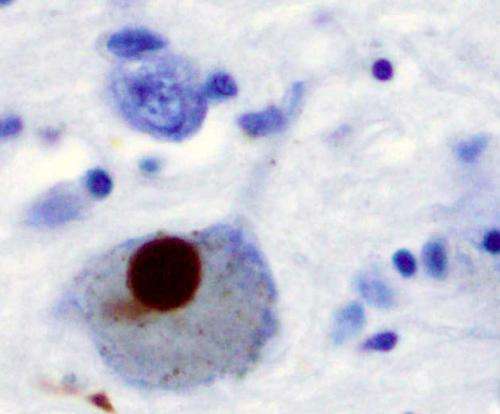Can boxing improve quality of life for people with Parkinson's disease?

People with Parkinson's disease who participate in a special, non-contact boxing program may have better quality of life and be more likely to exercise than those who do not participate, according to a preliminary study released today that will be presented at the American Academy of Neurology's 72nd Annual Meeting in Toronto, Canada, April 25 to May 1, 2020.
The study looked at Rock Steady Boxing, a nonprofit, non-contact fitness program designed for people with Parkinson's disease. In 90-minute group classes, participants work with a coach on a tailored boxing routine to gain strength, speed, agility, endurance, hand-eye coordination, footwork, and accuracy. There are currently hundreds of programs throughout the world.
Parkinson's disease is a movement disorder in which a chemical in the brain called dopamine is gradually reduced. This process results in slowly worsening symptoms that include tremor, stiff limbs, slowed movements, impaired posture, walking problems, poor balance and speech changes.
"Moderate exercise has long been associated with having positive impact on some people with Parkinson's, but the outcome of this specific regimen seems particularly favorable for the majority of people," said study author Danielle Larson, M.D., a neurologist at Northwestern University McGaw Medical Center in Chicago and a member of the American Academy of Neurology.
The study involved 1,709 people with Parkinson's disease with an average age of 69. Of the participants, 1,499 people were either current or previous boxing program participants and 210 had never participated. There was no difference between the two groups in number of years since being diagnosed.
Of participants, 43% attended an average of three or more classes per week, 48% attended an average of two classes per week and 9% attended an average of one class per week.
Participants completed a survey that included questions about their quality of life, such as depression, fatigue, and fear of falling.
The survey found that most of the boxing program participants reported improvement in several quality of life areas, with 70% reporting a better social life, 63% reporting less fatigue, 62% feeling less afraid of falling, 60% experiencing improved mood, and 59% feeling less anxious. Also, 99% of current and 94% of previous boxing participants would recommend the program to others with Parkinson's disease.
Current participants scored better than non-participants on assessments of quality of life and willingness to exercise. Non-participants scored 32 and current participants scored 25 on a standardized zero to 100 Parkinson's disease quality-of-life scale where zero represents the best quality of life. In another standardized scale of zero to 90 with the higher number indicating greater confidence in taking part in an exercise regimen, the boxing program participants scored 54 and non-participants scored 48.
"This demonstrates that Rock Steady Boxing participants have improvement in the non-motor symptoms of the disease and, compared to non-participants, have significantly better quality of life and are more likely to feel confident engaging in continued exercise," said Larson.
A limitation of the study was that the survey was taken only once. The study did not follow participants and non-participants to see how their scores changed over time.




















